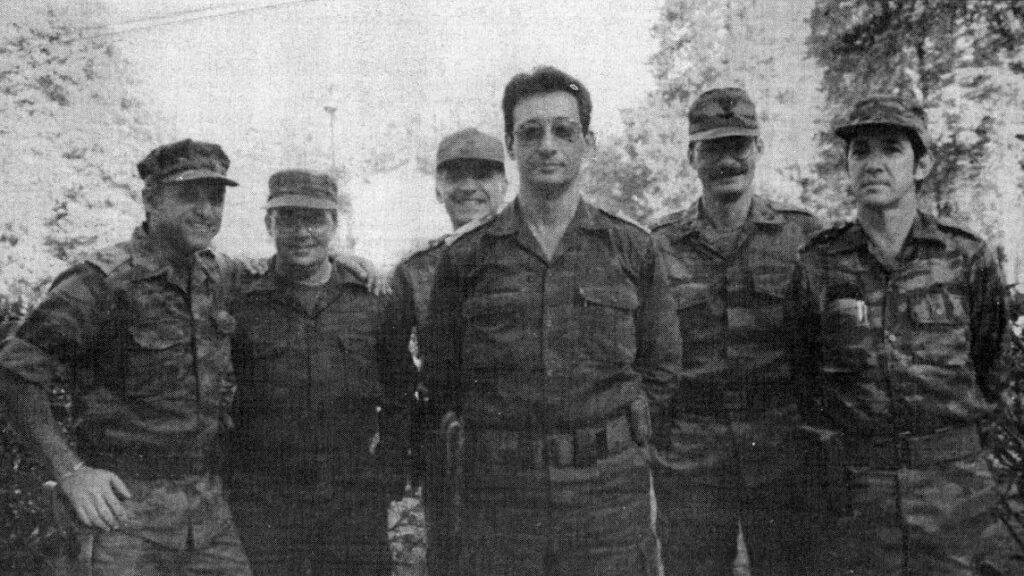Knowing how the hierarchs of the regime live, what they eat, who they sleep with, the watches they wear, what jokes they tell, produces a poisonous effect: that is the true merit of Norberto Fuentes

Xavier Carbonell, Salamanca, July 28, 2024 — Arnaldo Ochoa was shot 35 years ago. Will anyone have remembered him on July 13, or Tony de la Guardia, or the others who shared lead, sweat and fear with him? I would also not have noticed the date if I hadn’t finally found, after two and a half years of searching, a copy of Dulces guerreros cubanos [Sweet Cuban Warriors]. I could never get the book in Cuba, with the photo of the executioner on the cover shooting his AK-47, a man making his way through history by fire and death. The exterminating angel.
Roberto Bolaño didn’t like that book. Bolaño, who probably only read the first pages – the condemnation of the reviewer out of necessity – dedicates to him the hardest words that have been said about Norberto Fuentes: “It is as if Raúl Castro today went into exile in Miami and wrote a book lamenting the injustices committed by his brother in forty years of dictatorship.” To Fuentes, the survivor par excellence of Cuban literature, there is no way to approach him without having an opinion. Few have read his work, but all of us – including me – read it with rage against Fuentes; we read to refute or get pissed off with Fuentes.
“It’s as if Raúl Castro went into exile in Miami today and wrote a book lamenting the injustices committed by his brother”
Bolaño fell into that trap. He criticized the ‘syncopated style’ of the book, its chronic imitation of Hemingway, the revolutionary double standard – two Rolexes, two houses, two women, two pistols, two passports – and the fate of someone whom the writer does not consider, a soul in pain. Going, not without disgust, through the 459 pages of that book does not transform the reader. There is no apology or excuse anywhere – that also displeased the Chilean – and the author doesn’t like it any better. Nor the man.
However, Fuentes delivers an outsider’s guide to the Cuban Revolution that is at the level of – and perhaps surpasses, because it is written by an old agent – other horror chronicles, such as the Mapa dibujado por un espía (Map Drawn by a Spy) by Cabrera Infante or the now worn out Antes que anochezca (Before Night Falls) by Reinaldo Arenas. As a writer, one regrets that Fuentes — obsessed with the center of power, with killing his Person


